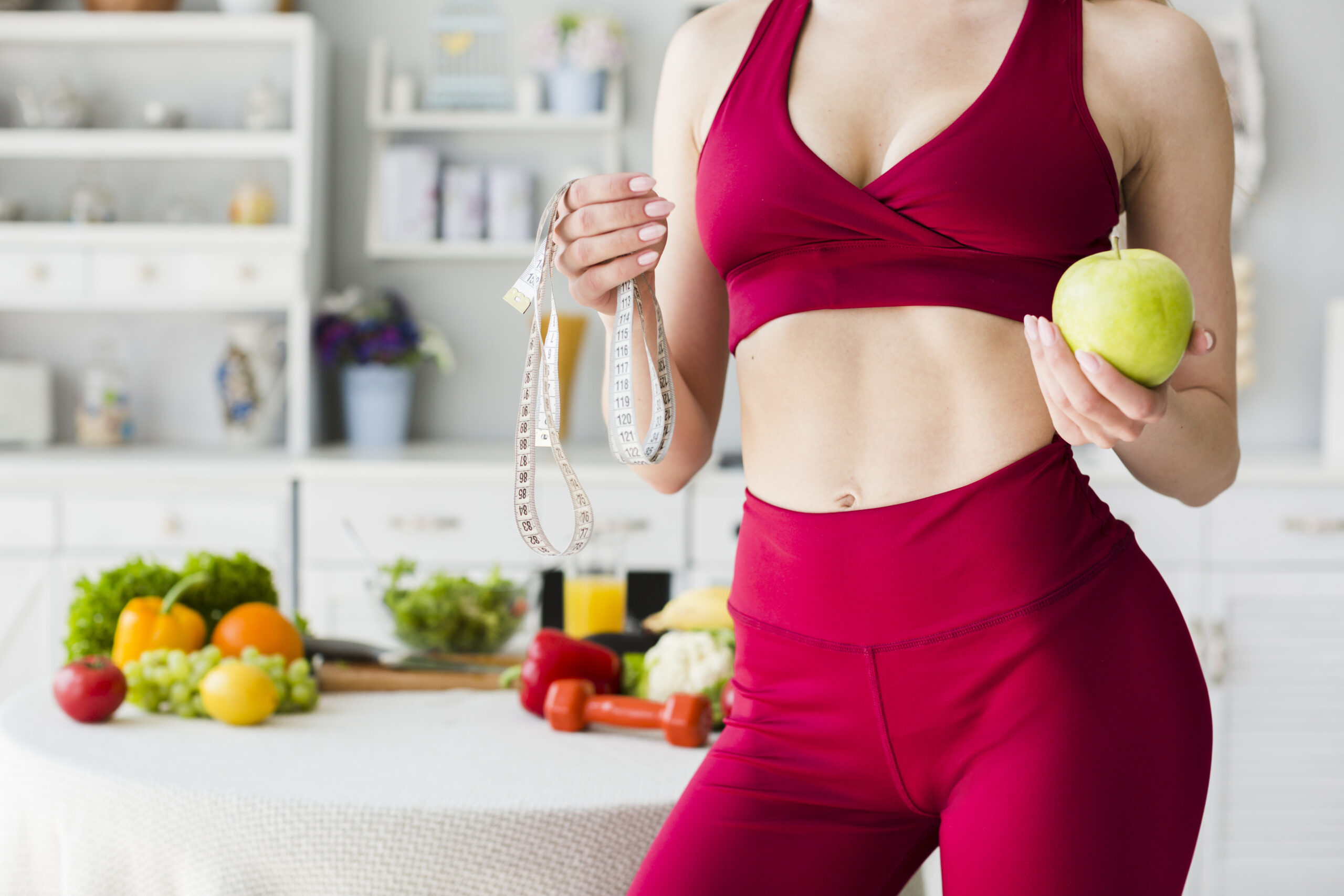Sports Nutrition is the study of eating and drinking to improve athletic execution and enhance recuperation. For competitors and dynamic people, nourishment assumes a basic part in accomplishing maximized execution as well as in lessening the gamble of injury, upgrading recuperation, and advancing long haul wellbeing. Whether you’re an expert competitor, an end of the week champion, or just somebody who appreciates normal activity, understanding the essentials of sports sustenance can assist you with arriving at your wellness objectives all the more successfully.
In this blog, we will investigate the critical parts of sports sustenance, how to fuel your body previously, during, and after work out, and the significance of hydration, supplements, and adjusted eating for athletic achievement.
Key Parts of Sports Nutrition
Sports nourishment is based on three essential support points: macronutrients, micronutrients, and hydration. Every one of these assumes a significant part in supporting active work and in general wellbeing.
1. Macronutrients: Sugars, Proteins, and Fats
Macronutrients give the energy and building blocks essential for execution and recuperation. For competitors, the right equilibrium of sugars, protein, and fats is fundamental for both transient energy and long haul muscle fix.
Carbs: The Body’s Essential Energy Source
Sugars are the essential fuel for extreme focus work out. When consumed, they are separated into glucose, which is either utilized quickly for energy or put away in the muscles and liver as glycogen. During exercise, particularly in exercises that require perseverance, your body depends vigorously on glycogen stores for energy.
For competitors, sugar admission ought to change relying upon the power and span of the game. Perseverance competitors (e.g., long distance runners, cyclists) need a larger number of carbs than strength-based competitors (e.g., weightlifters) in light of the fact that their energy requests are higher.
Straightforward carbs (tracked down in natural products, desserts, and sports drinks) give fast energy and are great for short, extreme focus exercises or as a pre-exercise nibble. Complex carbs (tracked down in entire grains, vegetables, and vegetables) give supported energy and ought to frame the underpinning of a competitor’s eating regimen.
Proteins: The Structure Blocks of Muscle
Protein is fundamental for muscle fix, recuperation, and development. After work out, especially opposition preparing, muscle strands experience infinitesimal harm that should be fixed. This is where protein comes in, providing the fundamental amino acids to reconstruct and fortify muscle tissue.
Competitors need more protein than the typical individual to help muscle fix and recuperation. The suggested protein consumption for competitors is around 1.2 to 2.0 grams per kilogram of body weight each day, contingent upon the game and power of preparing.
Great wellsprings of protein include:
- Lean meats (chicken, turkey, hamburger)
- Fish
- Eggs
- Dairy items (milk, yogurt, cheddar)
- Plant-based proteins (beans, lentils, tofu, quinoa)
Fats: A Wellspring of Long haul Energy
Fats are an imperative energy source, particularly for low-to direct power exercises like strolling, swimming, or significant distance running. While carbs give speedy energy, fats are separated all the more leisurely, making them ideal for high-intensity games.
Solid fats, especially unsaturated fats, ought to be an ordinary piece of a competitor’s eating routine. These fats are viewed as in:
- Avocados
- Nuts and seeds
- Olive oil
- Greasy fish (salmon, mackerel)
It’s vital to restrict the admission of immersed fats and keep away from trans fats, as these can adversely affect cardiovascular wellbeing and generally execution.
2. Micronutrients: Nutrients and Minerals
Micronutrients, including nutrients and minerals, are fundamental for energy creation, bone wellbeing, safe capability, and muscle fix. Competitors, because of their expanded actual requests, frequently have higher micronutrient prerequisites than non-competitors.
Key micronutrients for competitors include:
- Iron: Essential for oxygen transport in the blood, iron lack can prompt weakness and diminished execution. Food varieties wealthy in iron incorporate red meat, spinach, lentils, and braced cereals.
- Calcium and Vitamin D: Significant for bone wellbeing and muscle compression. Dairy items, mixed greens, and invigorated plant-based milks are great wellsprings of calcium, while vitamin D can be gotten through sun openness and braced food varieties.
- Magnesium: Associated with muscle unwinding and energy creation, magnesium can be tracked down in nuts, seeds, mixed greens, and entire grains.
- Cancer prevention agents (L-ascorbic acid, E, and Beta-Carotene): Assist with diminishing irritation and oxidative pressure brought about by serious activity. These can be tracked down in natural products (berries, oranges), vegetables (carrots, spinach), and nuts.
3. Hydration: The Groundwork of Execution
Legitimate hydration is basic for keeping up with ideal athletic execution. Drying out can prompt weariness, hindered center, muscle spasms, and intensity depletion, especially during long-span or extreme focus work out. Competitors need to give close consideration to their liquid admission previously, during, and after work out.
- Prior to Exercise: It’s vital for start practice all around hydrated. Drinking water or a games drink 2-3 hours before practice guarantees you have an adequate number of liquids in your framework.
- During Activity: For practice enduring under 60 minutes, water is generally adequate. For longer, more serious activity, sports drinks that contain electrolytes (like sodium and potassium) can assist with supplanting liquids and keep up with electrolyte balance.
- After Exercise: Post-practice hydration is pivotal for recuperation. Rehydrating with water, electrolyte-rich beverages, or recuperation shakes can assist with recharging lost liquids and reestablish harmony in the body.
Pre-Exercise Nourishment: Filling Up for Maximized operation
Pre-practice sustenance centers around giving the body the right equilibrium of carbs, protein, and liquids to fuel execution and postpone exhaustion. The planning of feasts is likewise significant.
- Timing: Eating a reasonable feast 2-3 hours before practice permits sufficient time for processing and supplement ingestion. For more limited or less extreme meetings, a more modest nibble 30-an hour prior to exercise can give a speedy jolt of energy.
A decent pre-exercise feast ought to include:
- Starches to fuel muscles (e.g., entire grains, natural products, vegetables)
- Protein to forestall muscle breakdown (e.g., fit meat, eggs, yogurt)
- Sound fats with some restraint (e.g., avocado, nuts)
For instance, a pre-exercise dinner may be cereal with banana and almond margarine, or a turkey sandwich on entire grain bread.
During Activity: Supporting Energy and Execution
For more limited episodes of activity (under 60 minutes), water is by and sufficiently large to keep up with hydration. In any case, for high-intensity games or extreme focus preparing enduring more than 60-an hour and a half, consuming starches and electrolytes during activity can assist with supporting energy levels and forestall parchedness.
- Starches: Basic carbs as sports drinks, energy gels, or tidbits like bananas can give a speedy energy source.
- Electrolytes: Sodium, potassium, and magnesium are lost through sweat and should be renewed during delayed work out.
- Post-Exercise Sustenance: Recuperation and Muscle Fix
- Post-practice nourishment is pivotal for recuperation. After work out, muscles are exhausted of glycogen and need starches to reestablish energy. Protein is likewise important to fix harmed muscle tissues.
- Timing: Intend to eat inside 30-an hour after work out, when muscles are generally open to supplement assimilation.
- Carbs and Protein: A blend of carbs and protein is great for post-exercise recuperation. A proportion of 3:1 (carbs to protein) is by and large suggested. For instance, a recuperation feast could be a smoothie with protein powder, natural products, and yogurt, or a barbecued chicken wrap with vegetables.
- Hydration: Rehydrating with water or an electrolyte-rich drink is fundamental to recharge liquids lost during exercise.
Supplements in Sports Sustenance
While an even eating regimen ought to meet most competitors’ healthful necessities, certain enhancements can assist with filling in the holes or improve execution:
- Protein Enhancements: Whey protein, casein, or plant-based protein powders can be advantageous for competitors who battle to meet their protein needs through entire food varieties.
- Creatine: Well known among strength competitors, creatine assists increment with muscling mass and further develop focused energy execution.
Fanned Chain Amino Acids (BCAAs): BCAAs might assist with diminishing muscle irritation and further develop recuperation after work out. - Electrolytes: Enhancements containing sodium, potassium, and magnesium can assist with supplanting electrolytes lost through sweat, particularly during perseverance occasions.
Sports Nutrition is an essential part of athletic execution and recuperation. By understanding the jobs of macronutrients, micronutrients, and hydration, competitors can upgrade their eating regimens to fuel their bodies for preparing and rivalry. Appropriate nourishment upgrades execution as well as lessens the gamble of injury, further develops recuperation, and advances long haul wellbeing. Whether you’re a carefully prepared competitor or simply beginning, focusing on what you eat and drink can have a massive effect in arriving at your wellness objectives and keeping up with maximized operation.

